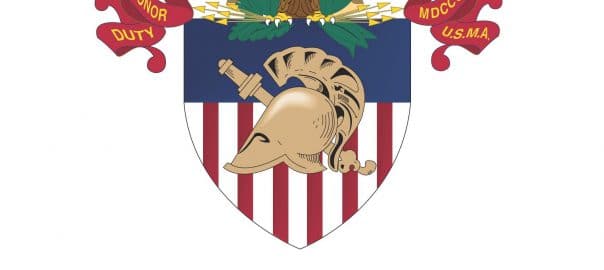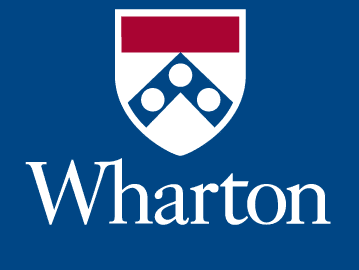The Society for Marketing Advances (SMA) held their annual conference during the first week of November 2011, bringing together marketing educators from throughout the United States and abroad.
Lecturer William M. Madway of The Wharton School at the University of Pennsylvania co-chaired the Marketing Education track, putting together a discussion panel called “Teacher Friendly Options for Incorporating Experiential Learning Projects in Marketing Courses”. Bill brings over 20 years of experience in the marketing profession to the classroom. He has used various experiential learning projects in his marketing classes, including our Music2Go Marketing Simulation and the National Student Advertising Competition.
He was joined by Professor Katie Matthew, a Major in the U.S. Army and Instructor at the United States Military Academy at West Point. Katie teaches courses in marketing and military leadership for the Department of Behavioral Sciences & Leadership and also uses our Music2Go Marketing Simulation.
Other educators who shared their experience on the panel include Leslie Kendrick from John Hopkins University & Whiting School of Engineering’s Center for Leadership Education; Marilyn Lavin from University of Wisconsin – Whitewater; and Sandy Utt from University of Memphis.
The session was designed to familiarize marketing educators with effective experiential learning projects that are relatively easy to implement. The session recognized that while educators identified the advantages of experiential learning, and even students tend to prefer active, real-world teching techniques, challenges exist that hinder greater use of these methods.
Below is an excerpt from the Conference Guide regarding this issue:
“One major impediment is the amount of time involved in designing and carrying out experiential learning activities, especially real-world class projects. Instructors often must find a company willing to serve as a “client,” and must then manage this relationship. These projects also require instructors to provide a great deal of support for students outside the classroom. What’s more, it can be difficult to assess individual student learning and performance, as many of these projects are carried out by teams. Online simulations eliminate the need to find clients, but still require considerable advising time, not to mention the time needed to address the inevitable technical problems.”
Fortunately, a number of experiential learning options that overcome these challenges are now available for use in a wide variety of marketing courses, ranging from Introduction to Marketing to capstone courses such as Marketing Strategy and Advertising Campaigns. Many of these options involve “live” cases, developed in cooperation with major multinational companies, in which students conduct primary research, develop recommendations, and present their findings to the client company. Multiple universities can simultaneously utilize the cases, which usually include a competitive aspect, i.e., teams at participating schools compete against one another for recognition, and in some cases, prizes. Some of these projects allow students to actually implement their recommendations, with funding provided by the sponsoring company”.
The SMA session focused on four experential learning projects which panelists identified as being among the best available and providing a benchmark against which other options could and should be measured:
The Music2Go Marketing Simulation. A highly realistic, comprehensive online marketing simulation developed by Smartsims. Students take over the MP3 player division of a large consumer electronics company, and formulate segmentation, positioning, sales, distribution, pricing, new product development, and promotion strategies, as they attempt to build their firm into the leading player in the market. Student teams compete against other teams within their course.
The Marketing Internship Program (MI), one of two types of industry-education collaborative programs created by EdVenture Partners. In the MI program, students taking a for-credit, marketing or advertising class research the target audience; create a marketing campaign, which they pitch to their client for approval; and implement their plan using funds provided by their client. Students also analyze their results and present their findings to their client. Organizations participating in the MI program in recent years include Chevrolet,
Nissan, Sapphire Mobile Systems the FBI, and the U.S. Navy.
The Google Online Marketing Challenge. Student teams receive $200 of Google advertising, and work with local companies or NGOs to create online marketing campaigns. The challenge is open to colleges around the world. Regional winners and their professor receive a trip to a regional Google office; the global winners and their professor receive a trip to Google’s world headquarters.
The American Advertising Federation’s National Student Advertising Competition. Student teams develop an integrated communications campaign to address a real-world marketing problem facing the sponsoring company or non-profit, and “pitch” it to a panel of judges in regional competitions. The top team in each region advances to the national finals. Recent NSAC sponsors include AOL, Coca-Cola, Florida Tourism, J.C. Penney, and State Farm Insurance.
The panel also discussed the integration of the above projects into syllabi, the instructors’ roles, the provision of resources and assistance in overcoming likely challenges. Performance evaluation, participant reflection and the impact of competitive elements in the projects were also discussed.
Below are some publications courtesy of William M. Madway:
Teacher-Friendly Experiential Learning Projects Reference Guide for Marketing Educators
Smartsims are proud to be recognised at the SMA, which discussed the Segmentation Options of the simulation in great detail covering Market Demographics, Products, Pricing, Distribution and Promotion. Panelists discussed how one of the simulation’s greatest value adding feature was recognizing and catering to Consumer Preferences across various unique and emerging market segments. We hope to continue contributing positively to the Marketing Educational System throughout the world.
– Danny Master


